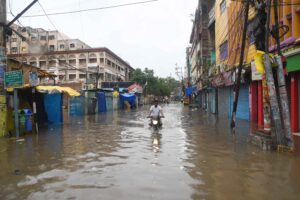
Patna : Patna Medical College and Hospital (PMCH), one of Bihar’s largest public hospitals, is set to reintroduce a triage system in its emergency department within a week. The move comes in the wake of public outrage following the death of a minor rape survivor who was reportedly denied timely treatment.
The 14-year-old girl, a resident of Muzaffarpur, was brought to PMCH on 31 May, where she allegedly spent over four hours waiting for admission. She was eventually hospitalised but died the next day. The incident triggered widespread anger and led to the removal of the hospital’s deputy superintendent by the state health department.
In a high-level meeting on Friday, PMCH superintendent and heads of departments agreed to revive the triage system, which had previously been discontinued when the hospital’s old emergency building was demolished. The triage will enable trained nurses and doctors to assess incoming patients and prioritise those in critical condition for immediate admission and care. This system, already operational in premier institutions such as AIIMS Patna and IGIMS, had been absent from PMCH for years.
Under the triage model, patients are categorised into three groups—critical, moderate, and less serious—based on urgency. This ensures that those in life-threatening situations are treated without delay, potentially saving lives in high-pressure environments like emergency wards.
However, even as the hospital moves to address systemic delays in emergency care, another serious issue looms over PMCH: accessibility to its cancer department. Patients, many travelling from other districts, have reportedly been turned away at the gate due to the deplorable condition of the approach road. With large potholes and muddy terrain made worse by rain, even stretchers cannot be wheeled into the department.
This unit, currently operating out of a partially demolished building, is due to be shifted to a new facility under Phase 2 of the hospital’s expansion plan. But construction is expected to take at least another 18 months. Until then, cancer patients continue to suffer in silence—some without access to clean drinking water, others misled by touts claiming the department has been shut altogether.
“Earlier, over 50 patients used to visit the OPD daily. Now, barely 20 manage to reach,” said one hospital staff member. The department houses the hospital’s cobalt machine and provides gender-segregated wards—but even the basics like water supply remain elusive.
As PMCH takes tentative steps towards reform in its emergency care protocol, the challenge remains to extend dignity and access across departments. The triage revival marks a start, but systemic gaps—from neglected infrastructure to misinformation and staff accountability—still leave Bihar’s most vulnerable patients at risk.





